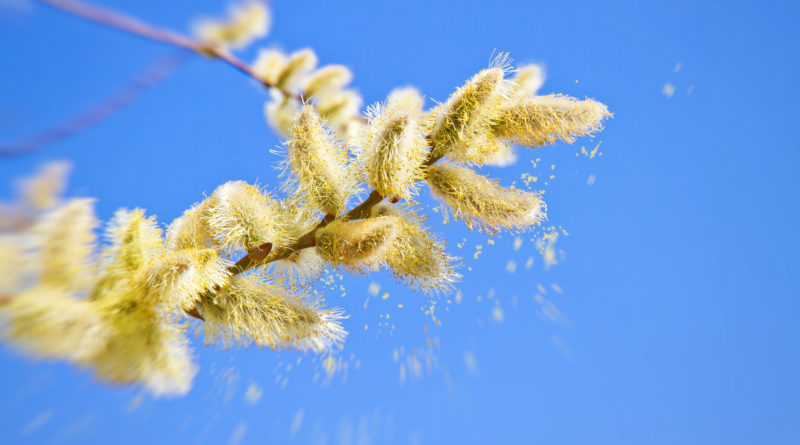Pollen Levels Are Reaching Record Highs Across The Country
2,059 total views, 1 views today
April and May are notoriously difficult months for seasonal allergy sufferers. The increased pollen counts that March brings don’t get any easier as spring goes into full swing, and 2019 isn’t sparing allergy sufferers in the least. Across the country, meteorologists are clocking record high pollen counts (the measurement for the number of grains of pollen suspended per cubic meter of air). Here are a few of the many areas where pollen counts are breaking records and concerning locals.
Atlanta
In early April, the pollen count in Atlanta hit its highest amount — 6,262 grains per cubic meter of air — since 2013. This figure is the fifth-highest count recorded in Atlanta since the city began recording this data in 1991. Local meteorologist Katie Wells tweeted that this amount is a whopping 69 times the pollen count range considered “high.” Kevin Schaffer of Atlanta Allergy and Asthma told the Atlanta Journal Constitution that 2019 has already been a “horrible year” for allergy sufferers.
Philadelphia
Phiadelphia has an especially large oak tree population that contributes strongly to its pollen counts. These trees have been giving off remarkably high amounts of pollen in recent weeks, with the final full week of April proving notably challenging for many allergy sufferers. Local experts say that this current week will see pollen levels remain just as high and that climate change will continue serving up pollen counts this high in the area.
Washington, D.C.
The U.S. capital experienced extremely high pollen counts in the third week of April, but local experts predict that a downward trend will start now and continue through May. Dr. Henry Fishman, the former chief of allergy at MedStar Georgetown University Hospital, told local news affiliate WTOP that it’s tough to avoid tree and grass pollen unless a person never leaves home or opens their windows. Fishman advised allergy sufferers to not be sparing with over-the-counter medications and consider allergy shots if symptoms become extreme.
Seattle
The Northwest Asthma and Allergy Center has reported that pollen counts in Seattle and much of the Pacific Northwest are currently hovering at more manageable medium to high levels. However, higher levels akin to those in Atlanta, Philadelphia, and Washington D.C. may soon greet Seattle. Dry conditions become more common for Seattle, a notoriously rainy city, as summer approaches, allowing for the wider spread of pollen. As well, grasses and weeds often begin pollinating in mid-May, driving allergy counts and local sufferers’ symptoms.
How to properly tend to allergy symptoms
The four cities listed are only a few of the many U.S. regions where high pollen counts are currently making people suffer. High pollen counts lead to symptoms including itchy eyes and skin, runny nose, sneezing, congestion, coughing, and even rashes. Over-the-counter medications such as Zyrtec, Claritin, and Benadryl can effectively counter these symptoms, though Benadryl should be reserved for nighttime use — its drowsiness side effects are strong. Contact a doctor if more severe symptoms occur, such as fever, facial pain, sinus or tooth pain, or bad breath — these may be signs of an allergy-related infection of congested sinuses.

